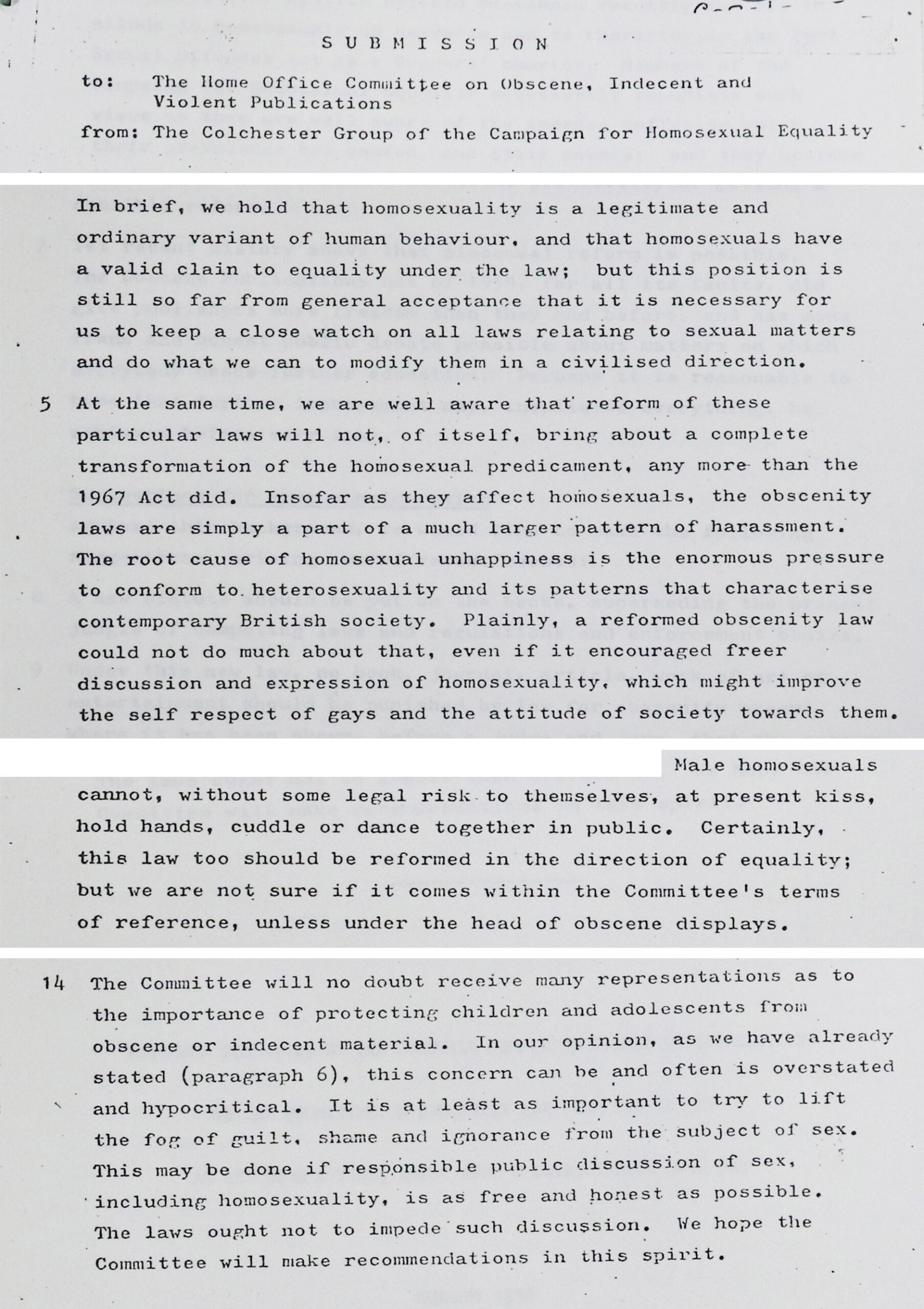
1977-79: Letter to the Home Office Committee on Obscene, Indecent and Violent Publications from The Colchester Group of the Campaign for Homosexual Equality. Catalogue ref: HO 265/3
The Committee on Obscenity and Film Censorship was a Home Office Committee in the 1970s who were tasked with reviewing laws around obscenity, indecency, and violence in published media.
This letter was written to the committee from the organisation The Campaign for Homosexual Equality, which aims to promote legal and sociality equality for LGBTQ+ people.
Transcript
To: The Home Office Committee on Obscene, Indecent and Violent Publications
From: The Colchester Group of the Campaign for Homosexual Equality
…
In brief, we hold that homosexuality is a legitimate and ordinary variant of human behaviour, and that homosexuals have a valid claim to equality under the law; but this position is still so far from general acceptance that it is necessary for us to keep a close watch on all laws relating to sexual matters and do what we can to modify them in a civilised direction.
At the same time, we are well aware that reform of these particular laws will not, of itself, bring about a complete transformation of the homosexual predicament, any more than the 1967 Act did. Insofar as they affect homosexuals, the obscenity laws are simply a part of a much larger pattern of harassment. The root cause of homosexual unhappiness is the enormous pressure to conform to heterosexuality and its patterns that characterise contemporary British society. Plainly, a reformed obscenity law could not do much about that, even if it encouraged freer discussion and expression of homosexuality, which might improve the self respect of gays and the attitude of society towards them.
…
Male homosexuals cannot, without some legal risk to themselves, at present kiss, hold hands, cuddle or dance together in public. Certainly, this law too should be reformed in the direction of equality; but we are not sure if it comes within the Committee’s terms of reference, unless under the head of obscene displays.
…
The Committee will no doubt receive many representations as to the importance of protecting children and adolescents from obscene or indecent material. In our opinion, as we have already stated, this concern can be and often is overstated and hypocritical. It is at least as important to try and lift the fog of guilt, shame and ignorance from the subject of sex. This may be done if responsible public discussion of sex, including homosexuality, is as free and honest as possible. The laws ought not to impede such discussion. We hope the Committee will make recommendations in this spirit.
- According to this letter, what are some of the barriers that faced LGBTQ+ people, specifically gay and bisexual+ men, in 1970s Britain?
- What is the letter-writer trying to achieve by sending this letter?
- How does this letter portray the 1967 Sexual Offences Act?
- After reading this letter, how do you think obscenity laws have been used to target LGBTQ+ people?
